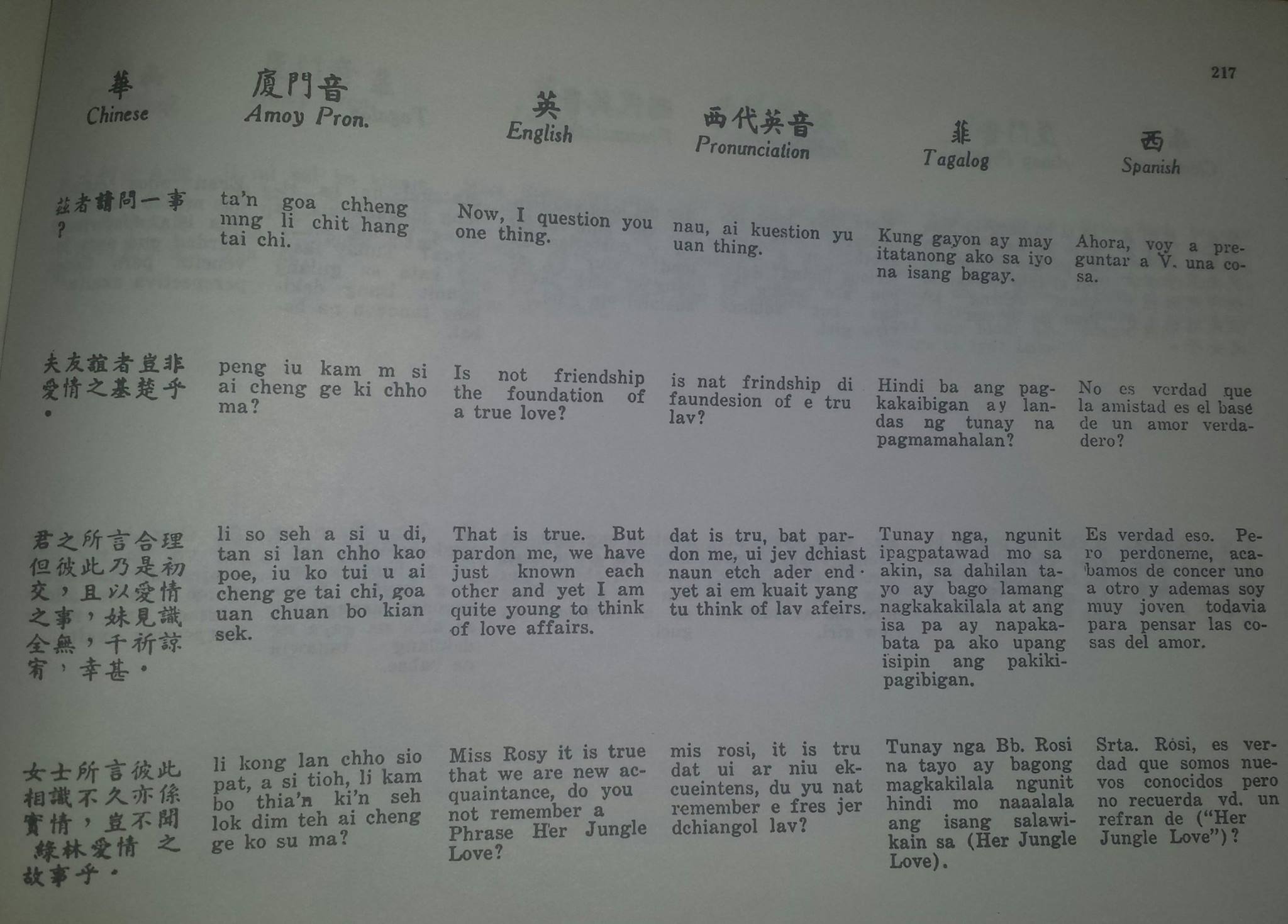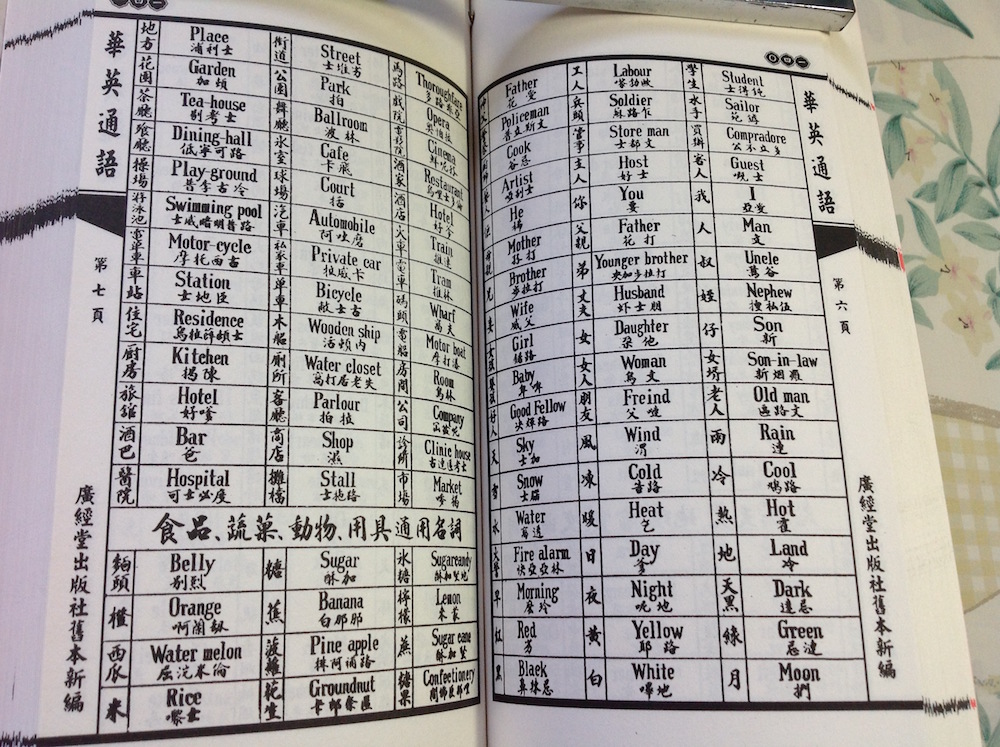Archive for Transcription
January 3, 2017 @ 10:07 am· Filed by Victor Mair under Names, Signs, Transcription, Translation
In several recent posts, I have pointed out how Chinese and Japanese announcements and greetings for foreigners are often pronounced in a special way that deviates markedly from what Chinese and Japanese would say to each other:
Read the rest of this entry »
Permalink
December 25, 2016 @ 8:00 am· Filed by Victor Mair under Language and music, Transcription
Dave Cragin asks, "How did 平安夜 come to mean Christmas Eve?"
Now that's a good seasonal topic if ever there were one.
Read the rest of this entry »
Permalink
December 11, 2016 @ 10:22 am· Filed by Victor Mair under Language and the law, Transcription
There was quite a stir this week surrounding a high profile court case in China over Michael Jordan's suit to control the branding rights to his name. The controversy is described in this NYT article by Sui-wee Lee:
"Michael Jordan Owns Right to His Name in Chinese Characters, Too, Court Rules" (12/7/16)
After reading the article, Ethan Merritt sent in some pertinent observations and questions:
Read the rest of this entry »
Permalink
November 23, 2016 @ 9:16 am· Filed by Victor Mair under Names, Transcription
From the following post, we see that there are three main ways to transcribe Donald Trump's given name in Chinese and two main ways to transcribe his surname:
"Transcription of 'Barack Obama', 'Hillary Clinton', and 'Donald Trump' in the Sinosphere" (10/2/16)
Here are the two prevailing transcriptions of "Trump" in Chinese characters:
Tèlǎngpǔ 特朗普 (mainland China, Macau, Malaysia/Singapore) — 4,970,000 ghits
Chuānpǔ 川普 (Taiwan, Hong Kong, but also on the mainland, especially on the internet) — 1,570,000 ghits
N.B.: The relative popularity of these two forms is shifting among different groups in all of the designated regions.
Read the rest of this entry »
Permalink
November 17, 2016 @ 9:53 am· Filed by Victor Mair under Lexicon and lexicography, Multilingualism, Topolects, Transcription, Translation
Page of a phrasebook published in 1941 (click to embiggen):

Read the rest of this entry »
Permalink
November 16, 2016 @ 8:32 pm· Filed by Victor Mair under Punctuation, Transcription
Google Street View in Pittsburgh at 5809 Forward Ave. shows a Young's Oriental Grocery.
The corresponding Hangul transliteration of "Young's" gives "Young 'seu 영 '스".
Read the rest of this entry »
Permalink
November 15, 2016 @ 3:13 pm· Filed by Victor Mair under Bilingualism, Lexicon and lexicography, Topolects, Transcription
Ryan of Singapore sent me photographs of a section from a Chinese almanac that amounts to a ten-page English phrasebook phonetically annotated in Cantonese. Here are two of the pages (as usual, click to embiggen):

Read the rest of this entry »
Permalink
November 5, 2016 @ 2:05 pm· Filed by Victor Mair under Creoles and pidgins, Language and education, Phonetics and phonology, Transcription
During the last few days, there has been a flurry of excitement over the circulation of photographs and information concerning an old Chinese textbook for learning English. Here are a couple of pages from the book (click to embiggen):

Read the rest of this entry »
Permalink
October 29, 2016 @ 8:54 pm· Filed by Victor Mair under Names, Transcription, Writing systems
This morning, an instructor in Jiangsu province, who has been teaching Chinese Culture in college English classes for 12 years and has also been giving lectures on Chinese Culture to international students, wrote to ask about the possibility of becoming a visiting scholar at Penn for half a year. She introduced herself to me as Lǐ Fǔluòwá 李甫洛娃. Her name threw me for a loop.
Read the rest of this entry »
Permalink
October 19, 2016 @ 8:27 am· Filed by Victor Mair under Names, Topolects, Transcription, Variation, Writing systems
We have already studied an old name for Singapore on the back of an envelope dating to 1901:
Now, Ruben de Jong, relying on the works of Dutch scholars, has discovered several others.
Read the rest of this entry »
Permalink
October 18, 2016 @ 8:56 am· Filed by Victor Mair under Borrowing, Lexicon and lexicography, Transcription
Nathan Hopson came across a marvelous Japanese word from the interwar period the other day: naihoku ナイホク.
Read the rest of this entry »
Permalink
October 16, 2016 @ 9:56 am· Filed by Victor Mair under Errors, Transcription, Writing systems
[This is a guest post by David Moser]
We're in the midst of moving to a new apartment. Yuck. So I'm packing boxes with our ayi, who is from Anhui province, and has been helping us with cooking and cleaning house for a few years now. I think she has at least a middle school education, but probably high school as well.
Read the rest of this entry »
Permalink
October 15, 2016 @ 8:21 pm· Filed by Victor Mair under Diglossia and digraphia, Language and computers, Tones, Transcription, Writing systems
A father speaks
[This is a guest post by Alex Wang, following up his remarks in "Learning to read and write Chinese" (7/11/16).]
The more I learn Chinese to teach my younger son Chinese reading and writing the more I realize for lack of better word how “ridiculous” it is for a “significant / modern” country to use such a reading and writing system. Perhaps I may be wrong because I’m not informed.
To provide some background, I grew up speaking only Chinese in the house. I went to Saturday school for a few years to learn a little bit of reading and writing but mostly forgot all of it by the time I came to Shenzhen 9 years ago. I did not learn pinyin; I was taught Bopomofo which I have forgotten entirely. I say this so that you understand my relative fluency in the spoken language. On reading characters, I can now recognize perhaps several hundred.
Read the rest of this entry »
Permalink


